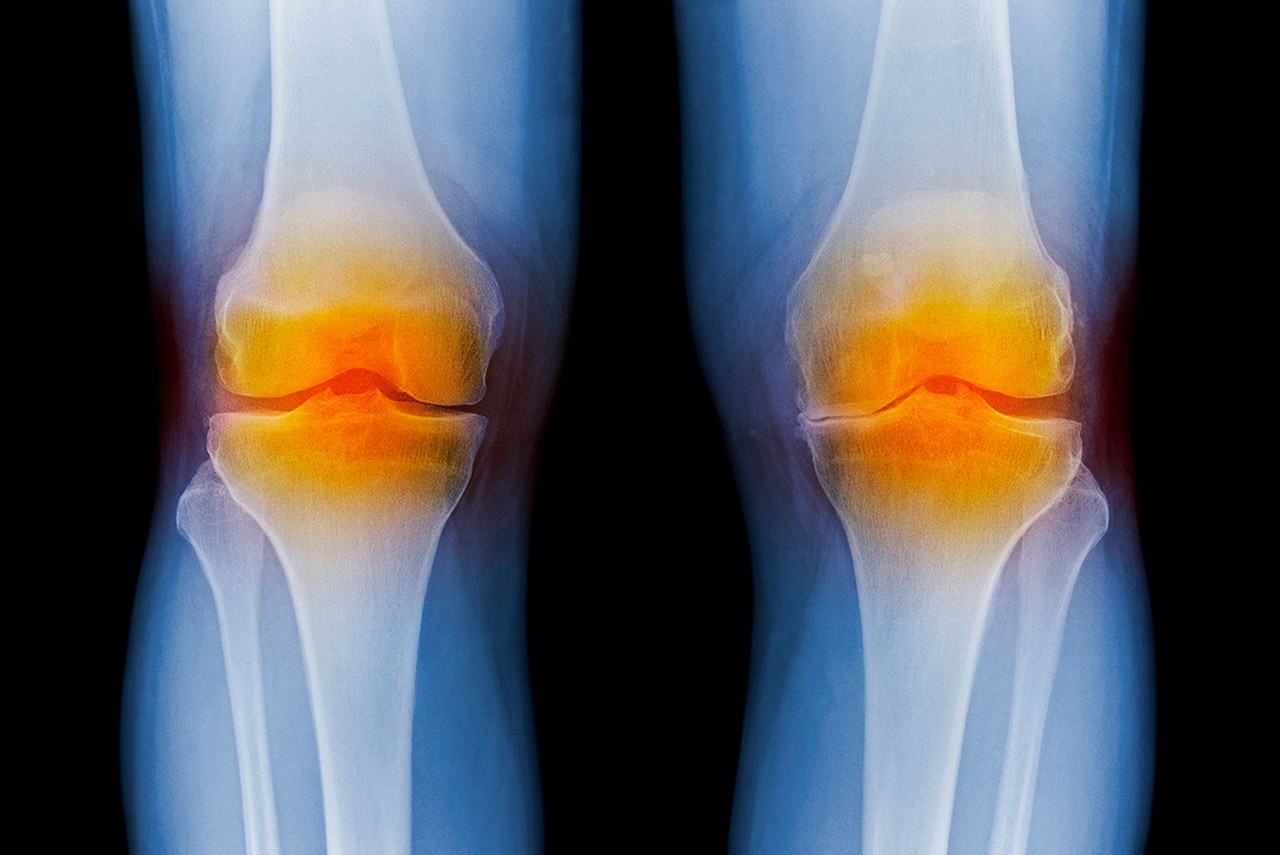A Joint Effort
Engineering dean partners with fellow researchers to develop breakthrough therapy for osteoarthritis
By Queen Muse

A new breakthrough therapy has the potential to prevent pain and joint damage and possibly alleviate the need for surgery for individuals living with osteoarthritis. It’s the research of Michele Marcolongo, PhD, PE, the Drosdick Endowed Dean of Villanova’s College of Engineering, and a team of researchers from Drexel University, Tulane University and the University of Delaware.
In July, she and her colleagues received a five-year $1.56 million NIH National Institute of Arthritis and Musculoskeletal and Skin Diseases grant to further their work on this project. Widely recognized for her expertise and innovative work in biomedical engineering, Dean Marcolongo has been working toward this sort of innovation since her days as a PhD student in Bioengineering.
She spent many hours shadowing surgeons as they performed highly invasive metal hip and knee replacements for patients long familiar with the debilitating pain of osteoarthritis. A surgeon she worked with once said, “Someday, Michele’s going to invent something we can just squirt in the knee to fix it all.” And now she’s well on her way.
Dean Marcolongo and the team developed biomimetic proteoglycans, or BPGs—lab-engineered molecules that can withstand the inflammatory enzyme attacks that typically cause joints to break down. When these BPGs are injected into joints, the researchers found they can molecularly engineer damaged cartilage, repairing degenerated tissues.
It’s a new strategy for patients with osteoarthritis, a degenerative disease of the joints for which there is no cure. Today, if a patient has early arthritis symptoms in their joints, they have limited options—take ibuprofen, get a steroid injection, undergo physical therapy or wait until later in life to get a total replacement.
“We don’t have many treatments to treat early arthritis and stop the progression to painful and debilitating symptoms,” says Dean Marcolongo. The treatment she helped develop has potential to fill that gap. It’s minimally invasive, requiring just a simple knee injection.
Dean Marcolongo says the therapy is not quite ready for the clinic, but if all goes well in the coming years of study, the therapy could see FDA approval as early as 2033.
It’s an exciting step forward for the Villanova Engineering dean who, in addition to her administrative duties, is excited to continue making contributions to the scientific field.
“As a dean, it’s beneficial to have a shared experience with faculty members who are also managing the double duty of teaching and doing research,” she says. “I want to try to move some of these strategies toward the clinic, toward helping patients. That has always inspired me.”
NEXT IN NOVA-WORTHY
Villanova researchers study 110 million-year-old fossil discovery